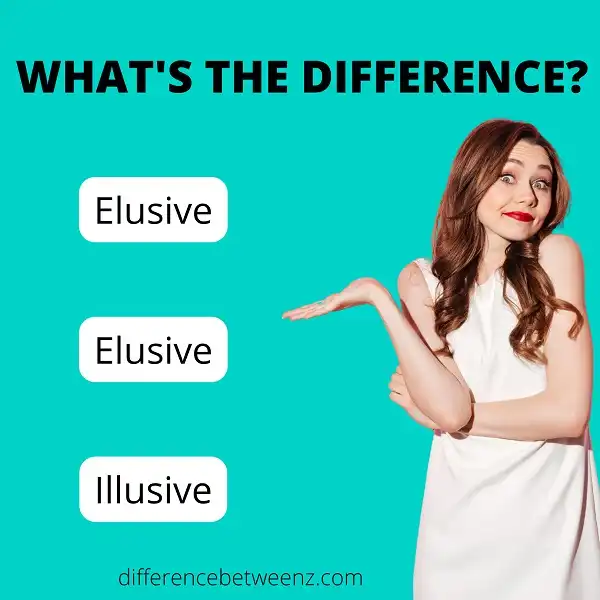People often use the words allusive, elusive, and illusive interchangeably, but they actually have different meanings. The word allusive means to refer to something indirectly or suggestively. Elusive means difficult to find or catch. Illusive means deceptive or misleading. It’s important to know the difference between these words because using them incorrectly can change the meaning of your sentence.
What is Allusive?
Allusive refers to something that is indirect or implied. Allusion is often used in literature, where an author may reference another work or event to add meaning to their own writing. Allusions can be helpful in understanding a text, as they often provide insights into the author’s intentions. However, allusions can also be cryptic, and readers may need to do some research to fully understand the reference. Allusions can add depth and richness to a piece of writing, but they can also be confusing or even misleading. Therefore, it is important to be aware of allusive language when reading or analyzing a text.
What is Elusive?
Elusive. It’s a word that gets thrown around a lot, but what does it actually mean? The dictionary defines it as “tending to slip or evade observation,” or “difficult to describe or grasp.” In other words, elusive refers to something that is difficult to pin down.
- This could be a feeling, an idea, or even a person. Elusive people are often described as “mysterious” or “enigmatic.” They’re the kind of people who are always one step ahead, and who seem to defy explanation.
- Elusive ideas are those that seem just out of reach, no matter how hard you try to understand them. And elusive feelings are those that are hard to shake, like sadness or anxiety.
- Elusive things can be frustrating, but they can also be intriguing and inspiring. Ultimately, it’s up to each of us to decide what we make of the elusive things in our lives.
What is Illusive?
Illusive is defined as something that is misleading or deceptive. It can be used to describe an object that appears to be one thing, but is actually another. Illusive can also be used to describe a person who is skilled at deception. When someone is described as being illusive, it means that they are difficult to catch or understand. Illusive can be both a positive and negative quality. On the one hand, it can be used to describe someone who is mysterious and intriguing. On the other hand, it can be used to describe someone who is untrustworthy and difficult to pin down. In either case, illusive is a word that has many different connotations.
Difference between Allusive Elusive and Illusive
- Allusive, elusive, and illusive are all words that describe things that are difficult to catch or grasp. Allusive refers to something that is hinted at or alluded to. Elusive describes something that is difficult to find or capture.
- Illusive refers to something that is based on an illusion—something that is not real. All three words can refer to people or things. For example, you might say that a person is allusive if they are hard to get to know.
- You might say that a person is elusive if they are difficult to find. You might say that a person is illusive if they seem too good to be true. All three words have similar meanings, but allusive and illusive are more often used to describe people, while elusive is more often used to describe things.
Conclusion
Although allusive, elusive, and illusive are often used interchangeably, they do have distinct meanings. Allusive means that something is hinted at but not explicitly stated. Elusive refers to something that is difficult to catch or grasp. And finally, illusive means deceptive or misleading. Knowing the difference between these words can help you choose the correct one for your writing and improve your communication skills overall.


